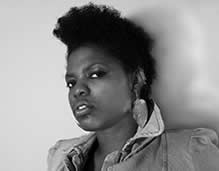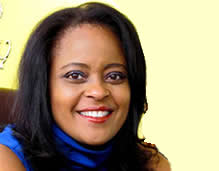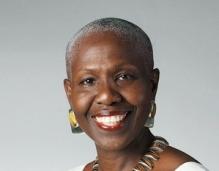A graduate of the Edna Manley College of Visual and Performing Arts, Ebony is an Assistant Professor in Painting at the University of Kentucky. “Beauty, gender, body and the grotesque are on going discussion in my work. I am enthralled by the repulsive, the bizarre and the objectness of bodies and the contradictions that both have to art historically and culturally. I seek to reference beauty through the use of the grotesque but visceral, confrontational and deconstructed.
Ebony's most recent exhibition is Gangstas, Disciplez and Doiley Boyz a show dominated by portraits of young Jamaican men who bleach their skin, pluck their eyebrows and wear 'bling' jewellery in defiance of racial and sexual stereotypes. Ebony finds beauty in their psychic violence glamourizing them with glittered halos and luscious lipstick. She questions why young black men, especially those related to Jamaica's dance hall culture, are regularly viewed in terms of aggression. She re-balances this male macho personna with feminine touches and homo-erotica.






